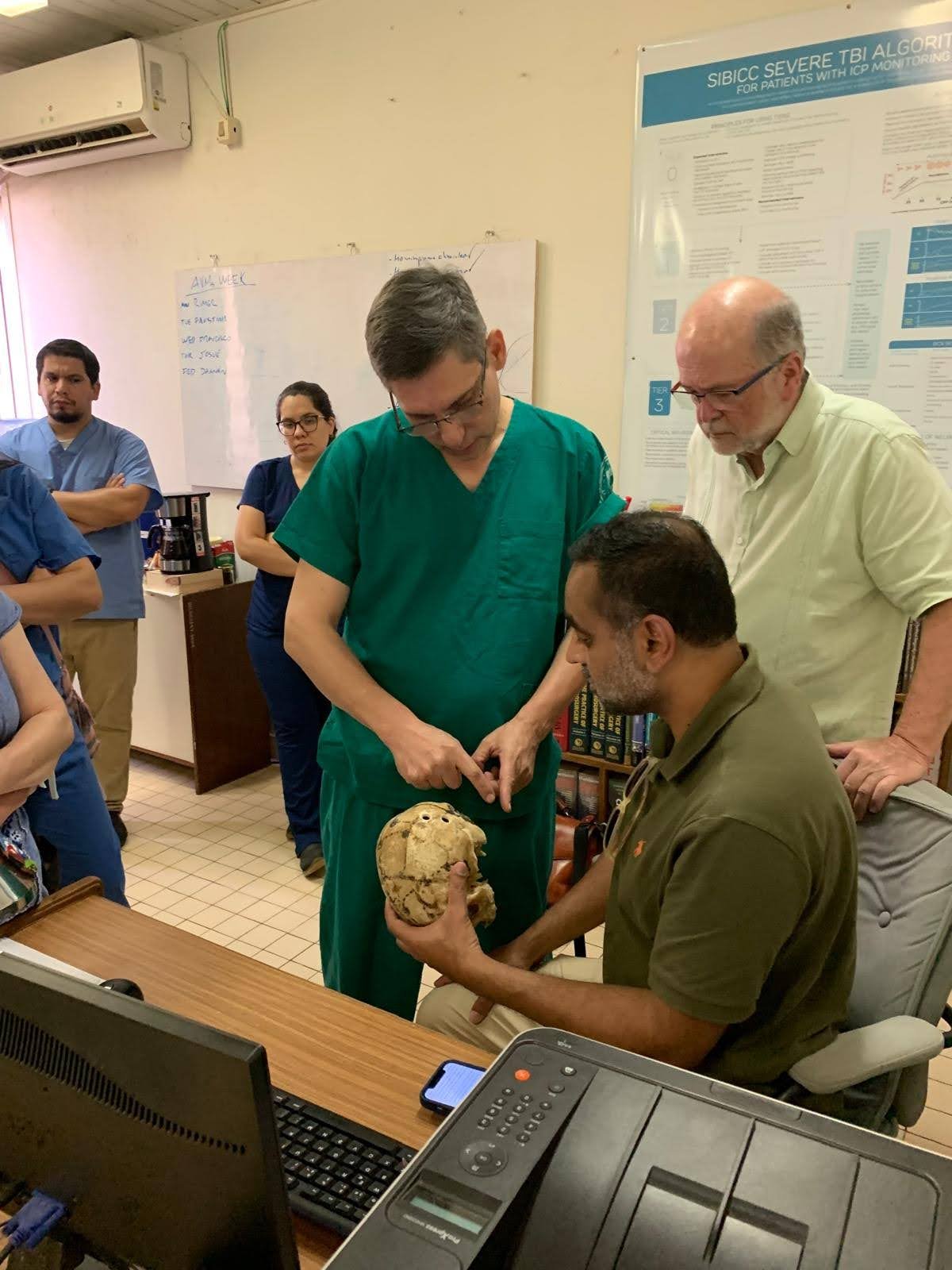“Successful surgical training is not dependent on the equipment, the finances, or even the planning as much as on the dedication of the people and their motivations for being here.”
Read MoreEndoscopic transnasal surgery uses a tiny camera through the nose to remove tumors from the pituitary gland and skull base. U.S. neurosurgeon Richard Moser and Bolivian ENT Patricia Arteaga delivered a comprehensive course for 11 doctors eager to learn the technique.
Read MoreOver 60 residents, students, and early-career doctors in Bolivia and Paraguay are participating in a UW-Madison virtual neurosurgery residency program facilitated by the NNI.
Read MoreIn today’s gospel, Mary and Martha are confronted with their brothers’ serious illness. Their fear, worry and desperation are what many patients and their families feel when they receive the diagnosis of a surgically treatable condition, but are unable to access the needed operation.
Read MoreAnyone who has witnessed the devastating impact of a traumatic brain injury knows that an integrated approach is needed to care for patients and support their reintegration into society. On a November NNI trip to Hospital Santa Bárbara in Sucre, Bolivia, we expanded our focus to the entire spectrum of care for TBIs.
Read MoreIn Bolivia’s public hospitals, head trauma from traffic accidents, falls, or violence represents a pressing healthcare burden. Head and spine injuries not only affect the long-term quality of life of the injured patient but of entire families and communities.
Read MoreThe three patients treated during our trip had experienced sudden and severe headaches and nausea, caused by a high-grade AVM. The complexity of their cases pushed the limits of surgical treatment available in Paraguay. But the doctors at the Hospital Nacional de Itaguá were motivated and eager to advance their skills in this type of care.
Read MoreToday is our third day at the Hospital Nacional de Itauguá, our second day of surgery. As we gathered in the faculty lounge, the surgeons seemed somewhat anxious. Yesterday’s surgery was successful, but today’s case will be much more difficult.
Read MoreTraveling to Bolivia, we’ve found a renewed sense of hope in the ability to be present with our colleagues during a time of global turmoil. The power of human connection and the joy of being physically present remains stronger than ever.
Read MoreBy physically traveling to Sucre, we channeled skills and resources that would be otherwise unavailable to our partner surgeons and their patients. Patients like Sergio, a thirty-two-year-old intensive therapy resident and father of two.
Read MoreBilingual medical students have made important contributions to our work, serving as interpreters for our mission teams. Amid the challenges of this global health crisis, we give thanks for their continued passion to provide healing care.
Read MoreSince the beginning of the orders in the U.S. to “shelter in place” Solidarity Bridge has remained connected to our solidarity community in Paraguay. Today we share a letter from one of our partners.
Read MoreDuring this second mission trip to Paraguay, rather than treat patients, we are starting by listening. We have listened to key leaders from medical, governmental, and faith backgrounds with whom we hope to partner in the future. Developing this local network of support is essential to making our efforts viable and impactful. We cannot do this work alone.
Read MoreOur neurosurgery team soon departs for Paraguay where a promising new partnership has begun at the public hospital in Asunción.
Read MoreAdvancing access to essential medical technology is a crucial component of the shared mission of Solidarity Bridge and Puente de Solidaridad. Our experience this week has proven to be a great opportunity to advocate for the international and local sharing of experience, building capacity, and reducing existing resource gaps.
Read More














